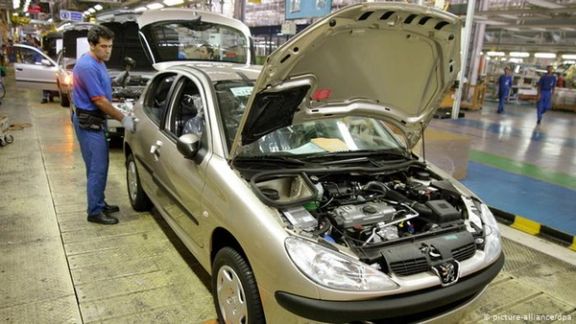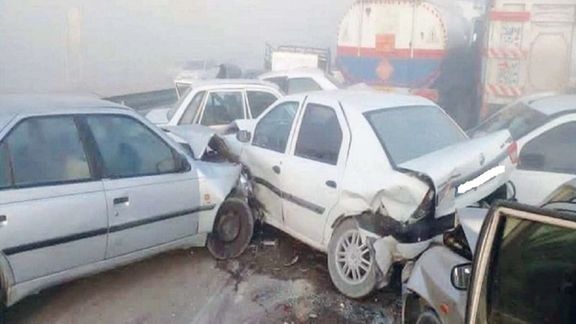Critics In Iran Blame Hidden ‘Mafia’ For Ban On Car Imports

Industry critics say a “mafia-like” influential group is behind a ban on car imports to eliminate competition to Iran's auto industry where their interests lie.

Industry critics say a “mafia-like” influential group is behind a ban on car imports to eliminate competition to Iran's auto industry where their interests lie.
In an interview with Bazaar website on Monday, Mehdi Dadar, secretary of car importers' association, said buyers in the Iranian market are critical of a ban on importing cars behind which, he alleged, lies a 'mafia group', as authorities do nothing to correct the situation.
Dadar accused policymakers of indirectly supporting Chinese auto parts manufacturers and turning the industry into "assemblers of Chinese parts". He alleged that powerful importers of car parts are behind government opposition to importing cars.
Iran's quasi-government automotive industry, the county’s largest after oil and gas, employs 700,000 workers. Iran annually makes nearly 1.5 million vehicles. The sector is in debt for billions of dollars and is a large burden for the government and its banks.
The issue of the ban on car imports introduced in 2018 became very controversial last week when lawmakers realized that their approval for the government to provide foreign currency to importers for 70,000 cars had been eliminated from the budget from the budget.
During their debate over the budget earlier, lawmakers had agreed to the government's plan to allow importing 70,000 cars in the next 12 months to augment tax revenues. The budget bill, however, set a condition that the cost of the imported cars would not exceed 25,000 per unit.

According to the official news agency IRNA, the omission was made with the knowledge of the parliament's presidium and Speaker Mohammad-Bagher Ghalibaf because they knew the constitutional watchdog, the Expediency Council would oppose it.
Critics, however, say that the Expediency Council and another watchdog, the Guardian Council, should not have intervened in a practical matter, and allege outside influences played a role in the interference.
Minister of industries, mines, and trade, Reza Fatemi-Amin, on March 13 claimed that the ban on car imports was a consequence of shortage of foreign currency rather than a measure to support domestic producers and the ban would be lifted soon.
Iran Khodro and Saipa, the two largest automakers, have a monopoly in the Iranian market.
Critics say by protecting automakers' interests in many ways, including by eliminating foreign competitors, successive Iranian administrations have become complicit in putting innocent people's lives in danger.
Road Police officials have repeatedly warned about inadequate safety standards of domestic cars. Speaking to the Iranian Students News Agency (ISNA) in October, Deputy Chief of Iran's traffic police, Brigadier-General Taymour Hosseini said road accidents were occurring due to inadequate safety standards as Iranian companies struggled to keep up with cost and parts sourcing. "Big companies in the world are working on intelligent cars but we have dropped our expectations so much that we are happy with having anti-lock braking systems,” he said.
In an interview on March 24 with Hamshahri Online, chief of Iran's road and traffic police, Brigadier General Kamal Hadianfar, criticized manufacturers for importing car parts from China, saying there is no effective quality control in the industry.
After two massive vehicle collisions involving tens of cars in southwestern Iran in January during which the cars' airbags failed to open, Hadianfar called domestically produced cars "carriages of death".